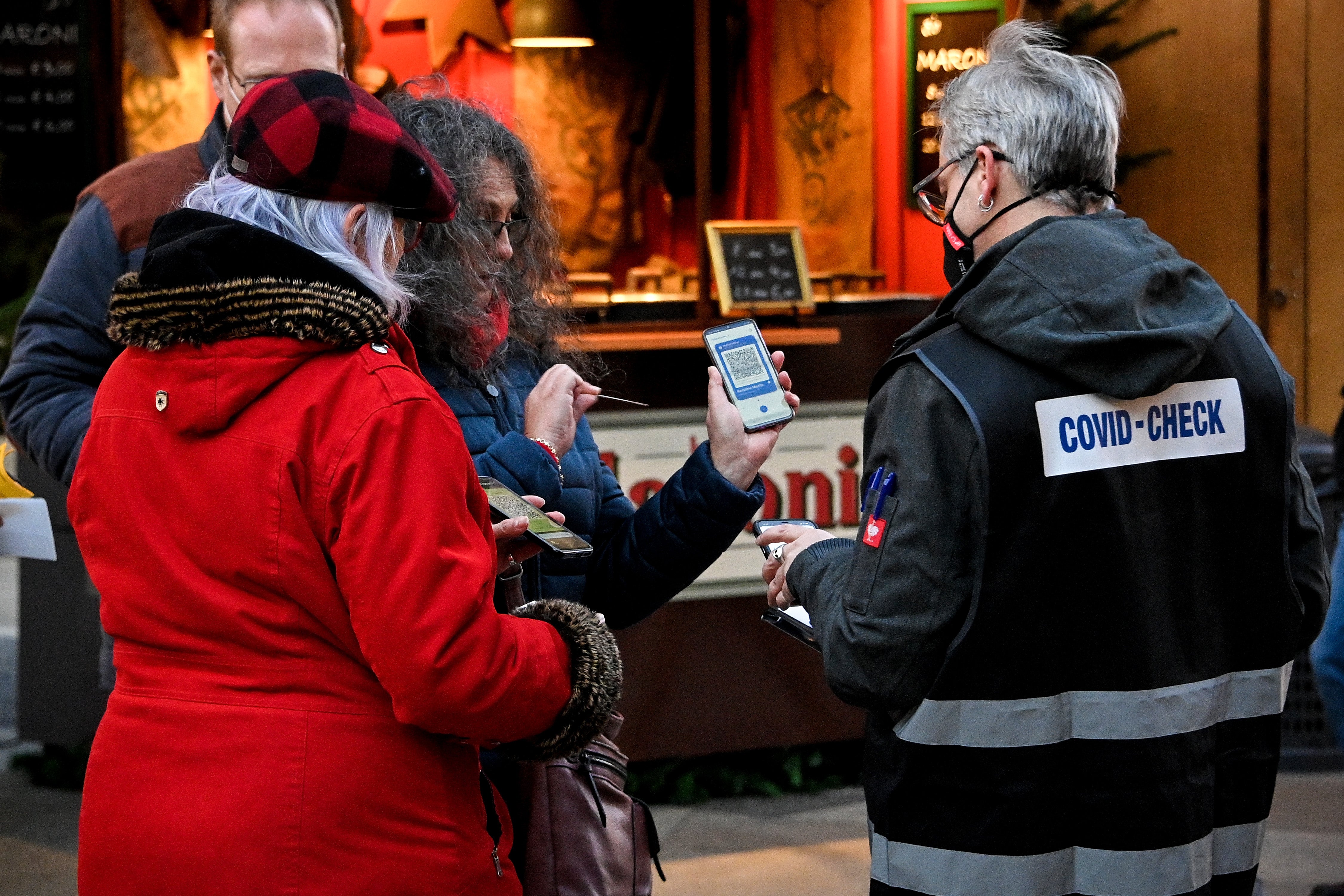Europe prepares for more restrictions as Omicron infections rise
Denmark, Germany and Ireland are set to impose or tighten measures before Christmas

Several European countries are preparing to impose further restrictions on travel and socialising in an effort to stem surging Omicron Covid-19 cases.
Germany, Ireland and Denmark are all considering new or tighter rules in the days before Christmas festivities kick off in earnest, following the footsteps of France, which closed its borders this week to most non-resident Brits.
Ireland’s Deputy Prime Minister Leo Varadkar said that in the face of a “cruel virus,” the government had no choice but to consider unpopular measures including early closing times for bars and restaurants.
“We’re all feeling anger, frustration, dismay, depression, but that cannot deflect us from making the right decisions to keep our people safe,” he said on Twitter.
Ireland’s government was meeting on Friday to consider the additional restrictions, including the possible closure of bars and restaurants at 5 p.m. The EU nation’s hospitality sector is already required to demand proof of vaccination from all customers and limit groups to tables of six.
Under rules that could be announced later on Friday, travellers to Germany from Britain would be required to quarantine for two weeks, a German health ministry spokesperson said.
German health minister Karl Lauterbach, a former epidemiology professor famed for his bearish Covid-19 forecasts, said he expected the Omicron variant to unleash a “massive fifth wave” of the pandemic.
Denmark logged almost 3,000 Omicron infections in the 24 hours to Thursday evening - doubling the previous day’s count - while overall daily infections broke another record.
The government will meet with parliament on Friday to propose new restrictions, like closing places such as theatres, cinemas, and entertainment parks. It also plans to ban the serving of alcohol after 2200 and has urged Danes to limit their social contacts.
The Omicron variant has driven infections in Britain close to peak levels seen in early 2021, although hospitalisations and deaths remain much lower. European countries and the United States have also seen infections spike in December.
Since the coronavirus emerged in Wuhan, China almost two years ago, more than 5 million people have died of Covid-19 globally and more than 272 million cases have been reported.
More than 8.5 billion doses of Covid-19 vaccines have been administered worldwide to combat the disease - an effort now complicated by Omicron’s outburst.
As more evidence emerges to support the need for booster doses to protect populations against Omicron, several countries have been racing to accelerate vaccination campaigns.
European Union governments agreed to order over 180 million doses of an adapted version against Omicron of the Covid-19 vaccine developed by BioNTech and Pfizer, the head of the European Commission said.
For its part, hard-hit France approved vaccination against Covid-19 for all children aged 5-11.
South Africa, which first identified the variant, said it would donate roughly 2 million doses of Johnson & Johnson’s Covid-19 vaccine to other African countries next year, through a medical supplies platform set up by the African Union.
A representative from South Africa’s National Institute for Communicable Diseases said Covid-19 hospital admissions and deaths had started increasing nationally, but from a very low base.
Reuters






Join our commenting forum
Join thought-provoking conversations, follow other Independent readers and see their replies
Comments